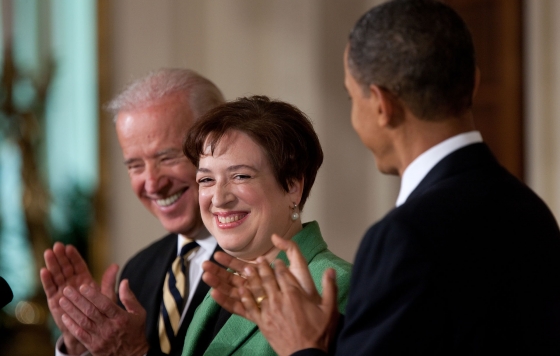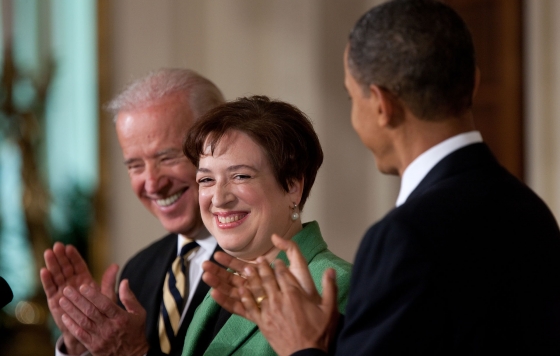 Conventional thinking is that there’s not much exciting about Supreme Court nominee Elena Kagan, either in her life story or in her legal area of expertise, administrative law. But there’s an interesting argument that Kagan’s drab-sounding expertise is precisely what environmental advocates need on the court.
Conventional thinking is that there’s not much exciting about Supreme Court nominee Elena Kagan, either in her life story or in her legal area of expertise, administrative law. But there’s an interesting argument that Kagan’s drab-sounding expertise is precisely what environmental advocates need on the court.
Climate-change overlaps quite a bit with administrative law — how government agencies craft and enact rules — particularly in the business of regulating carbon dioxide emissions. I’ve been told — though I haven’t been able to confirm — that one climate law scholar believes the House’s Waxman-Markey climate bill would require the executive branch to undergo 145 separate rulemaking processes. 145! Any climate bill that passes the Senate would likely require a similar amount of regulation, largely from the EPA.
(Update: Columbia Law School’s Michael Gerrard tells me he’s done an analysis that expects Waxman-Markey would require “about 145 separate rulemakings by various federal agencies.” His work is forthcoming in the Environmental Law Reporter.)
All of those rules fall under the Administrative Procedure Act, which requires that federal rule-makers listen to public comments, consider alternatives, and don’t do anything that’s “arbitrary and capricious.” Fun stuff, right?
We can expect climate-plan foes to sue against many of those rules. (They’ve already challenged carbon regulation from the EPA.) We can expect some of those challenges to climb up the court ladder and reach the Supreme Court. It’s nigh impossible to know which ones might reach the high court, though two of the more likely items would be a complex allocation scheme for emissions credits and rules about what counts as a carbon offset, according to Harvard Law School prof (and temporary Obama White House advisor) Jody Freeman.
“This is where Elena Kagan’s background sets her up as a potential environmental advocate,” writes The Atlantic’s Nicole Allan. “Her academic focus on administrative law reveals a faith in regulation similar to [retiring Justice John Paul] Stevens’, and her experience in all three branches of government has granted her an intimate understanding of how they intersect.”
An administrative-law scholar might be more effective and persuasive on the court than the eco-crusading justice some greens are hoping for — a point I’ve tried to make previously.
Stevens’ impressive green record rested not on arguing that the environment somehow transcends the law, as Nixon-era environmentalists suggested. Rather, says Allan, “[Stevens] thought laws and regulators, when correctly interpreted and respected, were the appropriate vehicles for environmental protection.”
That conviction is one way Kagan might follow in his footsteps.




